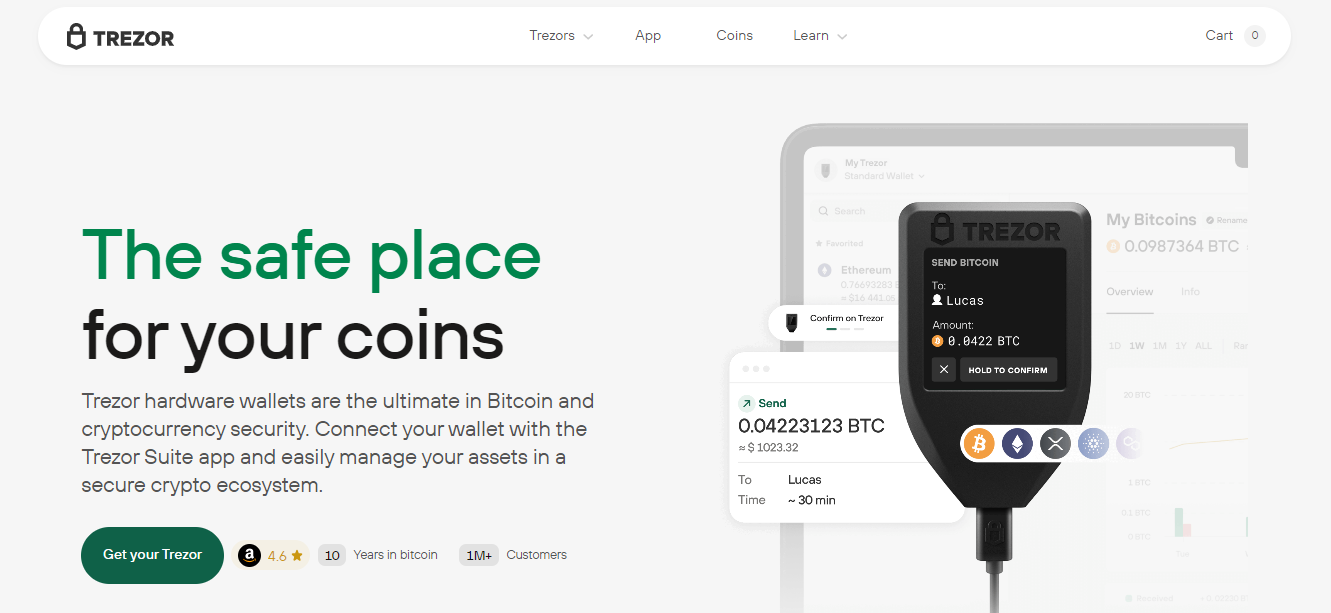
How to Start with Trezor — Visit trezor.io/start
This guide walks you through the official Trezor start process at trezor.io/start, explaining each step and best practices for secure setup. Whether you’re unboxing your first hardware wallet or reinitializing a backup, following these steps will get your device ready safely and quickly.
Why use trezor.io/start?
trezor.io/start is the official onboarding path provided by Trezor. It ensures you download authentic firmware, perform the initial setup using a verified web flow, and create a secure recovery seed. Going to trezor.io/start reduces the risk of counterfeit software and guides you through security best practices every step of the way.
Before you begin
- Unbox only from a trusted retailer and inspect tamper-evident packaging.
- Have a clean computer with an up-to-date browser and a USB port available.
- Close unnecessary apps and ensure your internet connection is stable while visiting trezor.io/start.
Step 1 — Open trezor.io/start and verify
Open your browser and go to trezor.io/start. The official site provides a guided flow: it checks your device, prompts firmware installation if needed, and verifies the authenticity of the firmware. Always confirm the URL is exactly trezor.io/start and avoid following links from untrusted sources.
Step 2 — Connect your Trezor
Connect the Trezor device to your computer with the supplied USB cable. The on-screen flow on trezor.io/start will detect the hardware and tell you when to proceed to the next step. Follow the prompts shown on the Trezor screen and the website.
Step 3 — Install official firmware
If the device requires a firmware update, trezor.io/start will provide the official firmware file and transparent instructions. Do not install firmware from any other source. The firmware step ensures your device has the latest security fixes and features.
Step 4 — Create your recovery seed
During initial setup the device will generate a recovery seed (a series of words). Write these words down on the supplied recovery card and keep it offline. Never photograph or store the seed on a computer or cloud service. The trezor.io/start flow explains how to confirm your seed and why it’s critical to keep it private.
Step 5 — Set up a PIN
Choose a PIN code when prompted. This protects the device in case it’s physically stolen. The PIN is entered on the Trezor device screen (not on your computer), which prevents keyloggers on your computer from capturing it. The trezor.io/start guide will remind you how to set a strong but memorable PIN.
Step 6 — Add accounts and start using
After setup you can add cryptocurrency accounts using the Trezor Suite or compatible wallets. trezor.io/start provides links and next steps to access Trezor Suite, learn how to receive and send funds, and configure advanced settings like passphrases or coin-specific features.
Security best practices
- Always navigate directly to trezor.io/start — don’t click links in unsolicited emails or social media.
- Keep your recovery seed offline in a secure location — consider a fireproof safe.
- Double-check transaction details on the Trezor device screen before approving.
- Beware of phishing sites: verify certificates and the correct URL when visiting trezor.io/start.
Common questions
Can I reinstall firmware later?
Yes. You can revisit trezor.io/start at any time to reinstall or update firmware. The site will lead you through the official procedure.
What if I lose my device?
If you lose your device, you can restore access using your recovery seed on a new Trezor or a compatible wallet that supports the same standard. Keep your seed safe and private — anyone with that seed can access your funds even without the physical device.
Is trezor.io/start free?
Yes — the onboarding guide at trezor.io/start and firmware updates from the official site are free. Beware of third-party services that try to charge for basic setup help.
Wrap-up — Start now at trezor.io/start
Following the official trezor.io/start flow gives you the safest and simplest way to initialize your Trezor device. From firmware verification to secure seed creation and PIN setup, the guided steps reduce mistakes and keep your crypto assets secure. When in doubt, return to trezor.io/start for the official instructions and resources.
Go to trezor.io/start